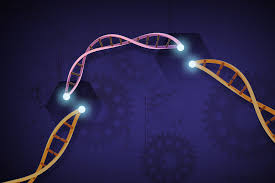Call For Global Moratorium On Creating Gene-Edited Babies
By Rob Stein,
National Public Radio [cites CGS' Marcy Darnovsky]
| 03. 13. 2019
A group of prominent scientists and bioethicists is calling for a global moratorium on any new attempts to bring gene-edited babies into the world.
"We call for a global moratorium on all clinical uses of human germline editing — that is, changing heritable DNA (in sperm, eggs or embryos) to make genetically modified children," the 18 scientists and bioethicists from seven countries write in an article published Wednesday by the journal Nature.
The call was prompted by the announcement last year by a scientist in China, He Jiankui, that he had used the powerful new gene-editing technique CRISPR to create the world's first gene-edited babies. He says he edited the twin girls' DNA when they were embryos to try to protect them from the AIDS virus.
The announcement was widely condemned as unethical and irresponsible. It also prompted an intense debate about whether more could have been done to have stopped the scientist — and should be done now to try to prevent any more researchers from going rogue.
In response, the new coalition of scientists and bioethicists...
Related Articles
By Diaa Hadid and Shweta Desai, NPR | 01.29.2026
MUMBRA, India — The afternoon sun shines on the woman in a commuter-town café, highlighting her almond-shaped eyes and pale skin, a look often sought after by couples who need an egg to have a baby.
"I have good eggs,"...
By George Janes, BioNews | 01.12.2026
A heart attack patient has become the first person to be treated in a clinical trial of an experimental gene therapy, which aims to strengthen blood vessels after coronary bypass surgery.
Coronary artery bypass surgery is performed to treat...
By Staff, ScienceDaily | 01.05.2026
Scientists at UNSW Sydney have developed a new form of CRISPR technology that could make gene therapy safer while also resolving a decades-long debate about how genes are switched off. The research shows that small chemical markers attached to DNA
...
Following a long-standing CGS tradition, we present a selection of our favorite Biopolitical Times posts of the past year.
In 2025, we published up to four posts every month, written by 12 authors (staff, consultants and allies), some in collaboration and one simply credited to CGS.
These titles are presented in chronological order, except for three In Memoriam notices, which follow. Many more posts that are worth your time can be found in the archive. Scroll down and “VIEW...




